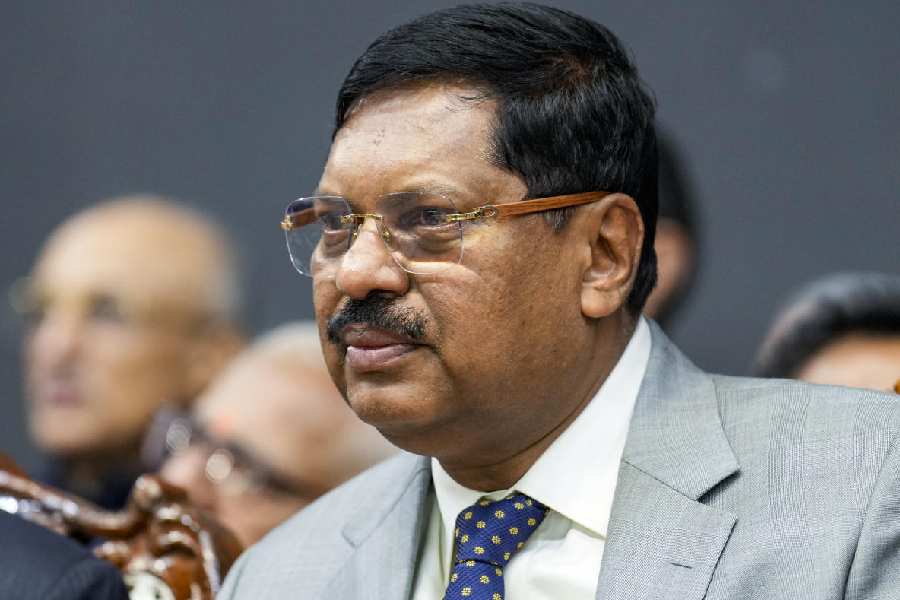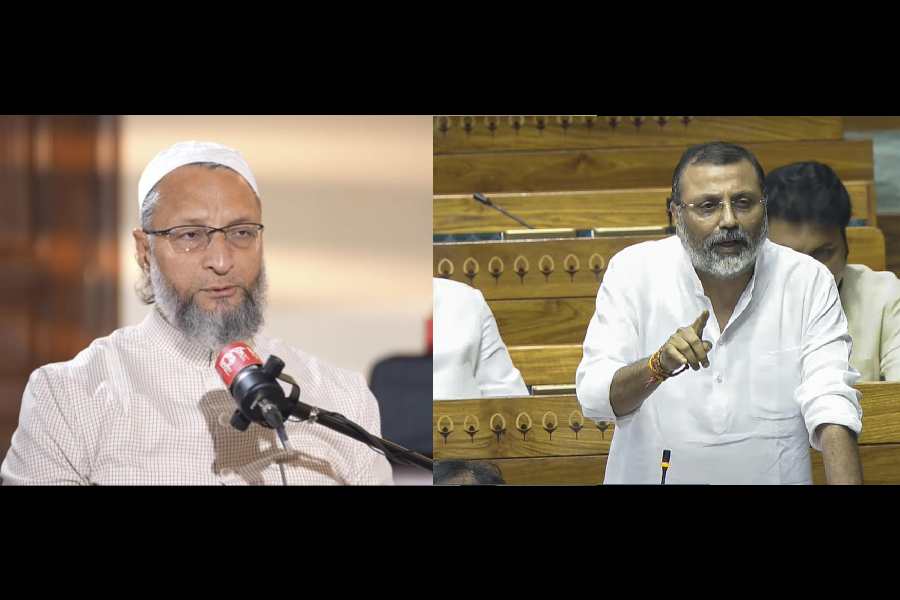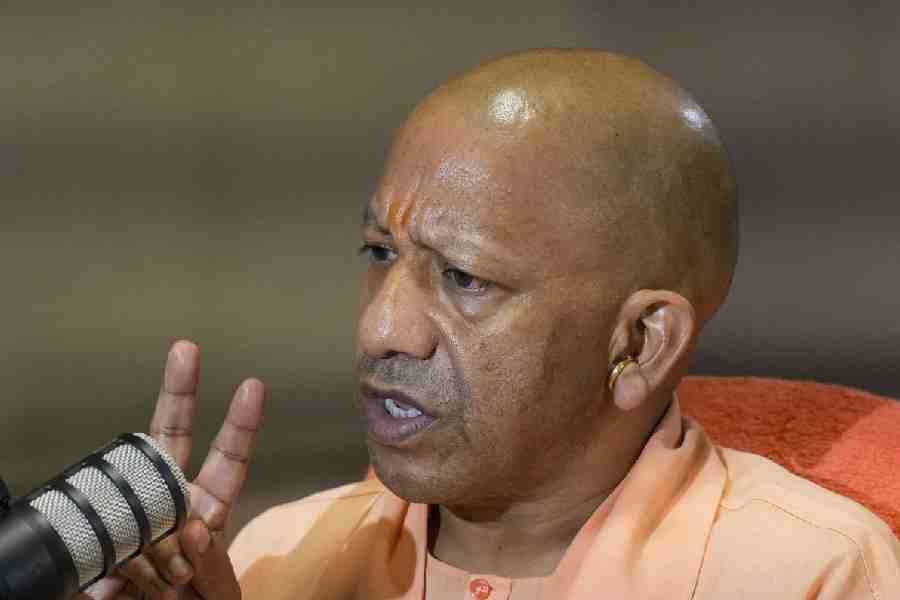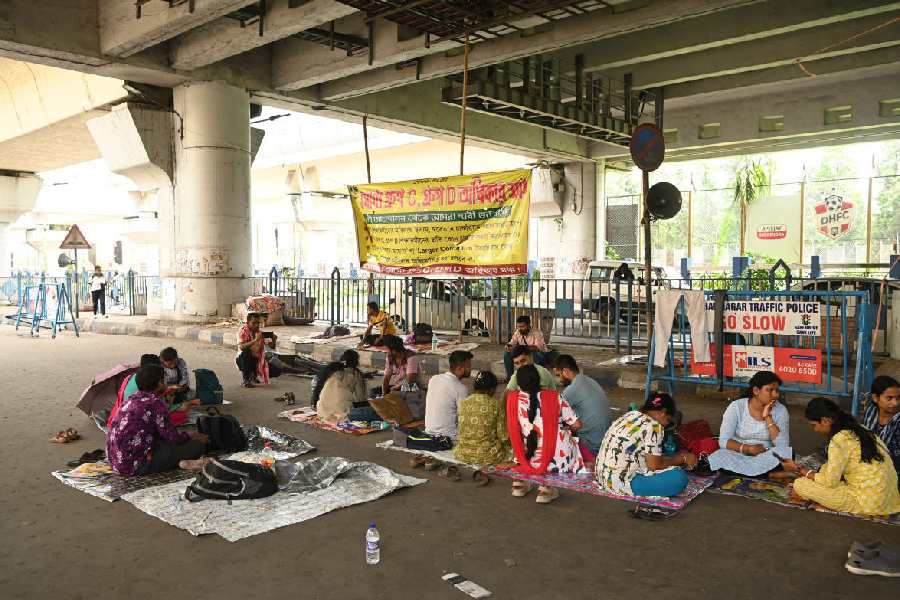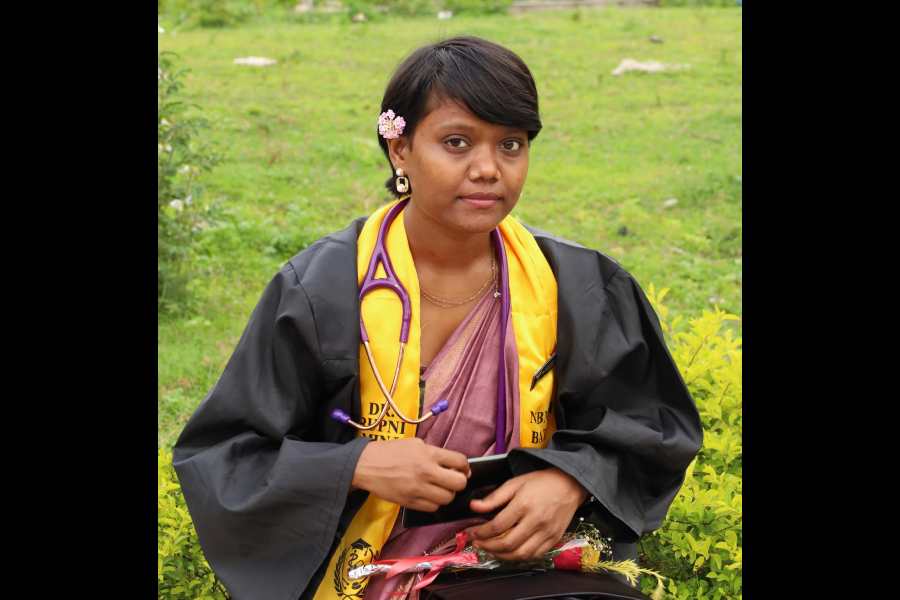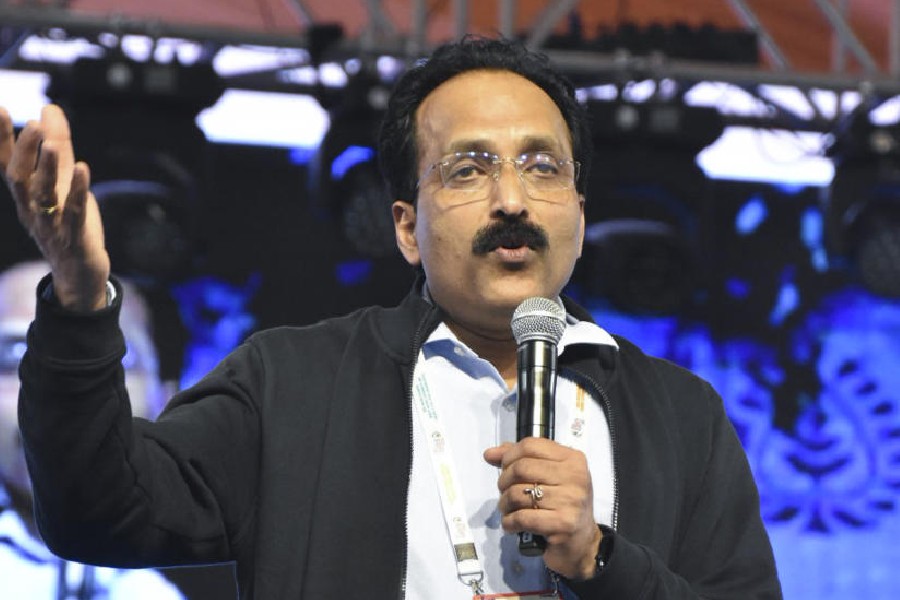 |
| Poster of a Kokborok film |
Tripura, April 21: In the militancy-ravaged interiors of Tripura, Kokborok films are slowly but surely bringing about a change in the attitude of a tribal population that seems to be caught in a time warp.
Lamaduari (Footmarks), the newest film in Kokborok, was released at a packed theatre in Khowai on Saturday. It is another fine cinematic specimen, one that tells a simple story and delivers a strong message.
Written and directed by Bimal Debbarma, Lamaduari depicts the agony of poor tribal villagers who are exploited by cruel moneylenders and ignored by the government. The predominantly social theme is woven into the story of a tragic love affair between a tribal boy and girl, who fail to tie the knot because of social prejudices and monetary problems.
Film critic Rohini Debbarma said he was impressed with most films in Kokborok, the language of the indigenous people of Tripura, because these highlight the social problems of the day and convey a message to the tribal community.
The public response to Lamaduari on the day of its release must have gladdened the hearts of everyone associated with the nascent Tripura film industry. Tribal welfare minister Jiten Chowdhury said there was no dearth of stories and themes for films in the local language.
Giving examples of “brilliant dramas” in Kokborok language, the minister said, “So many plays in Kokborok have been staged, which proves that there is no shortage of good themes. Chethuang, based on a folk tale and directed by Madhusudan Debbarma, won a national competition a few years ago.”
It is no coincidence that tribal artistes have been producing most films in a state that is supposedly “culturally dominated” by Bengali-speaking people.
Slain CPM leader and former health minister Bimal Sinha had made the first feature film in Kokborok, based on his novel Longtarai. Fluent in at least six regional languages, Sinha captured the trials and tribulations of tribal life in Tripura in his maiden film. But for his assassination by NLFT militants on March 31, 1998, Sinha would have made more films in the local language.
Joseph Pulinthanath, a Catholic priest, last year produced Mathia (Witch), a film based on the deep-seated prejudices of the tribal people against “witches” and “witchcraft”. The moving film revolved around the love affair between a boy and a girl who is accused of being a witch and sentenced to death by the tribal court.
Another brilliant film is Lagmani Daduk (In the course of life), financed by the Autonomous District Council and released in 1994. Directed by Ruhi Debbarma, it depicts the conflict between tradition and modernity in Tripura.


